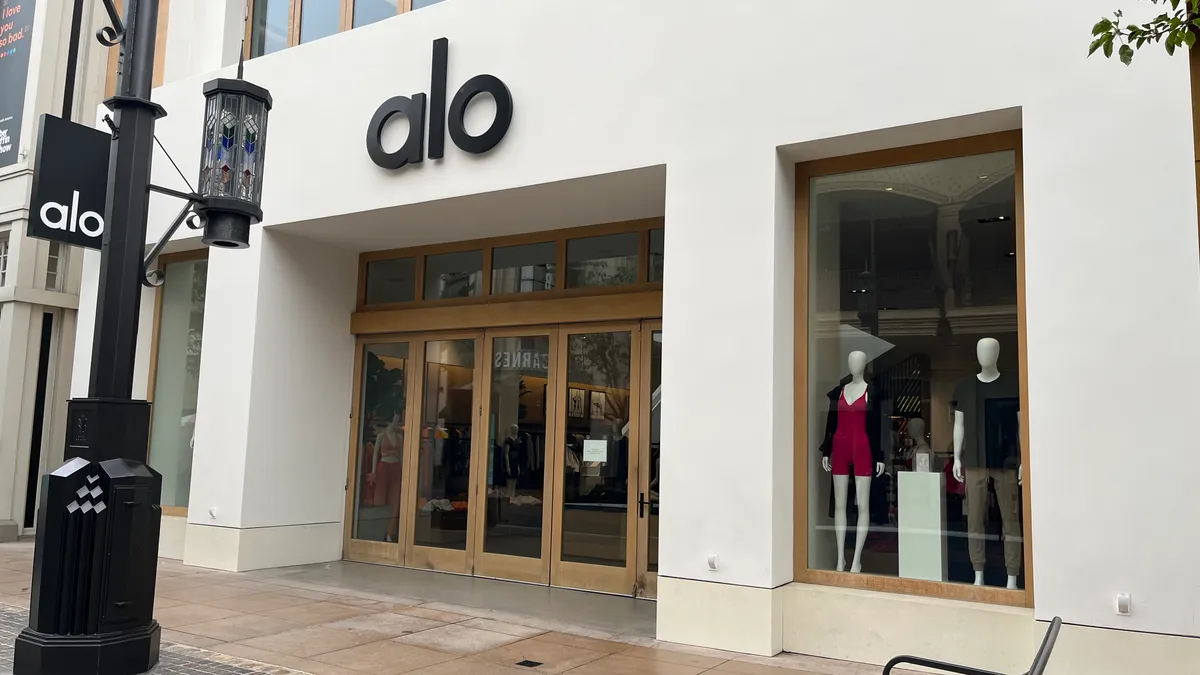Dive Brief:
- Alongside other major brands experimenting with virtual reality, direct-to-consumer athleticwear brand Alo Yoga has opened a virtual store that offers digital styling services, beauty and wellness tutorials, workout classes and other offerings, according to a Tuesday press release.
- As part of the virtual experience, customers can browse the brand’s collections, create custom outfits and view selected videos from the Alo Moves workout platform, usually only available to paid subscribers.
- The brand partnered with experiential e-commerce company Obsess to create the store, per the announcement. Shoppers can view the store on their desktop computers, mobile devices and via the Meta Quest 2 virtual reality headset.
Dive Insight:
The list of brands opening virtual stores to entice online shoppers just grew a bit longer.
In November, Bloomingdale’s teamed up with Emperia, another virtual experience development company, to create a virtual store showcasing shop-in-shops from Ralph Lauren, Chanel and Nespresso. A month later, beauty brand Laura Mercier also enlisted Obsess to launch its “World of Beauty” virtual store, where shoppers could find makeup shades, buy products and open their products in a 3D unboxing.
On its website, Obsess lists other brands, including Coach, Christian Dior and Ralph Lauren, as customers for which the company previously created virtual experiences. For Alo Yoga, the virtual store launch allowed the brand to share its new products in a 3D online environment similar to the in-store shopping experience, Angelic Vendette, vice president and global head of marketing at Alo, said in the release.
“Interactive shopping experiences incorporating VR are the future of e-commerce,” Danny Harris, co-founder and co-CEO of Alo Yoga, said in a statement. “They are an exciting new way for a visionary brand like ours to reach and engage our community while transporting them directly into our world.”
Launching a virtual store is just one of a series of tech investments Alo Yoga has made recently. Last June, the brand said it would accept cryptocurrency payments for online purchases and allow its employees to receive some or all of their wages in their crypto wallets. In September, the brand partnered with Web3 company MoonPay to release a non-fungible token, which offered perks like access to Alo Wellness Clubs.
Though brands are experimenting with the nebulous concept known as the metaverse, experts warn that it has not yet achieved high adoption rates, nor should it be conflated with virtual shopping. Last July, Forrester predicted in a report that shoppers wouldn’t be able to transport their goods freely between virtual environments within the next decade. That month, the firm released another report indicating that only 20% of U.S. consumers aged 42 to 57 are comfortable using extended reality environments, though that number grew to 42% for respondents 25 and younger.














